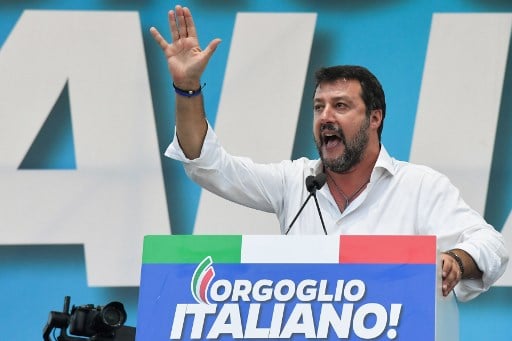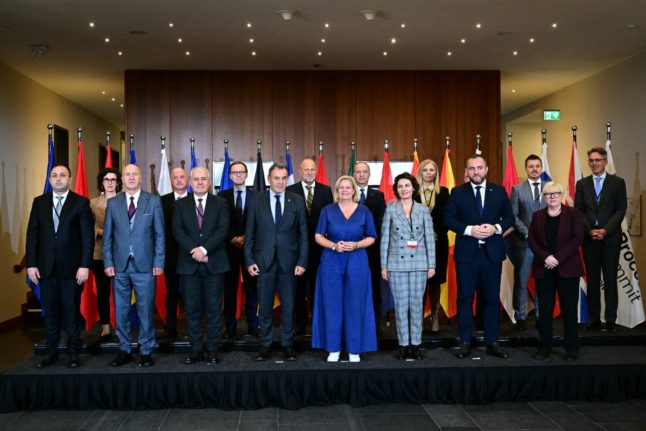An Italian senate committee voted on Monday to strip former interior minister Matteo Salvini of his parliamentary immunity, opening the way for him to stand trial for allegedly illegally detaining migrants last year.
Salvini, head of the right-wing populist League party, wrote on Facebook ahead of the vote that it would be “a trial against the Italian people”.
READ ALSO:
The ruling followed the recommendation by a court in Sicily that Salvini stand trial for blocking migrants on a coastguard boat last July.
Under Italian law ministers cannot be tried for actions taken in office unless a parliamentary committee gives the go-ahead.
Salvini called on League senators to vote in favour of the trial, “so we can clear this up once and for all”.
The League senators on the committee voted in favour of stripping Salvini's immunity, while those from the other right and centre-right opposition parties voted against.
Opponents in the centre-left Democratic Party (PD) and anti-establishment Five Star movement (M5S) boycotted the vote.
They accused Salvini of using the incident to win support ahead of a key regional election by portraying himself as a man hounded by the government and law courts merely for doing his job.

League party leader Matteo Salvini at a local election rally in Bologna. Photo: AFP
The final decision rests with the Senate, which will be called to give its opinion in a vote likely to be held in February, Italian media said.
Should Salvini go to trial, he faces up to 15 years in jail if found guilty.
Salvini had refused to allow 131 rescued migrants off the Gregoretti coastguard boat until a deal was reached with other European states to host them.
A court in Catania accused him of “abuse of power” in blocking those saved on board from July 27 to July 31.
READ ALSO:
- How Matteo Salvini lost his gamble to become Italy's PM – for now
- The Sicilian success story tackling 'myths' about migration
Salvini insists that was not an individual decision, but one backed by the government, includng current Prime Minister Giuseppe Conte.
Prosecutors in Sicily opened a probe into conditions on board the boat, where migrants shared one toilet between them.
This is the second time the League leader has risked trial over detaining migrants.
Last year a court ruled that he should be tried for preventing 177 migrants from disembarking the Diciotti coastguard ship, but the senate voted to defend his parliamentary immunity.
The then-interior minister's “closed ports” policy, aimed at stopping migrant arrivals from war-torn Libya, saw his popularity numbers shoot up.
Italy has long complained it has been abandoned by Europe to deal with migrant arrivals alone.
“If I have to go to jail for defending an idea, I'll go with my head held high,” Salvini told a rally in the region of Emilia Romagna.
READ ALSO:
The region, a traditional stronghold of the left, goes to the polls on Sunday, pitting the ruling coalition parties – PD and M5S – against the League.
Salvini's anti-immigrant party has a strong lead in national polls, and is now betting on a victory in Emilia Romagna – where it is now polling neck and neck with the left-wing candidate – being damaging enough to bring down the government and trigger elections.

Salvini takes a selfie with Emilia-Romagna's regional candidate Lucia Borgonzoni at a rally in Bologna. Photo: Andreas Solaro/AFP



 Please whitelist us to continue reading.
Please whitelist us to continue reading.
Thank God Italy has Salvini!